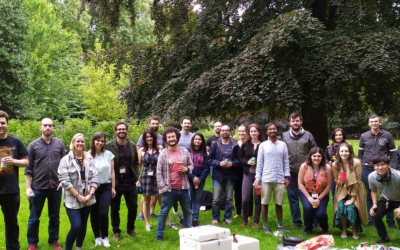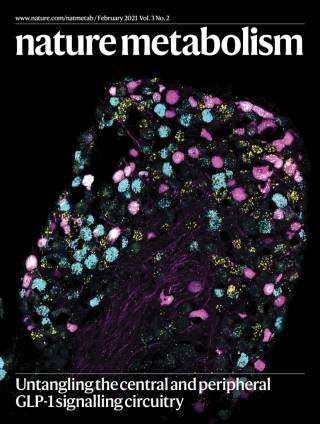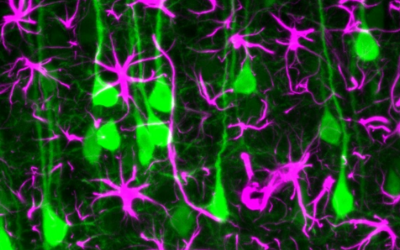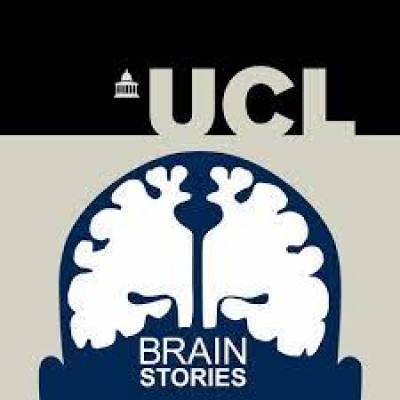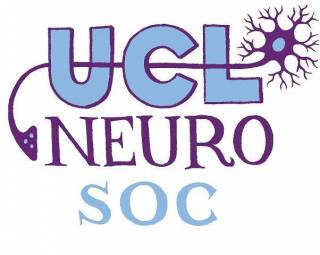Neuroscience MSc
| Programme Details | |
|---|---|
| Start Date | September, 2022 |
| Duration | 1 year Full Time |
| Location | UCL Bloomsbury |
Why study Neuroscience at UCL?
- UCL has the largest Neuroscience Research Community in Europe with over 450 Principal Investigators and 1500 Neuroscientists.
- The size of the community means that our students are always taught by subject area experts, many of whom are research leaders in their fields.
- Being home to so many world leaders in Neuroscience means we can offer more cutting-edge Neuroscience modules to our students than many similar programmes.
- The programme allows our students to choose their own topic and supervisor for their research projects in Years three and four. Both BSc and MSci students can take a library project in their third year.
- Unlike many similar programmes, our students begin to study Neuroscience on the first day of year one. Two of the seven compulsory year one modules are in Neuroscience. These modules are exclusive to first year Neuroscience students.
- Students join small group personal tutorials in their first year and remain in this group for the entirety of their degree.
- The programme provides dedicated Year Tutors and dedicated Student Success Advisors. Student advisors are offered to first year students and student wellbeing advisors to those in years two, three and four.
- Our carefully designed programme supports and guides students through their first and second years and then allows them choice and flexibility after they have built their knowledge base.
- Our students complete at least one summer internship either at UCL or a similar level overseas university. Students may begin to take on internships after the first year and are guided and supported through this process.
- We partner with other world leading Neuroscience institutes in London including the Sainsbury Wellcome Centre, the Gatsby Computational Neuroscience Unit, Google Deep Mind, Frances Cricke Insitute, Institute of Neurology and UCLH.
- The UCL Neuroscience Society is one of the largest student-led scientific societies in the UK. It hosts a mix of debates, talks and lectures as well as social activities.
Staff View
"I joined UCL in 2011 to establish my own laboratory. I study the neural basis of sound perception so it was critical to me that I joined a university that had both a large group of researchers working on hearing, and a large and thriving community of neuroscientists. At the UCL Ear Institute, I interact with scientists who work on all aspects of hearing and deafness while being embedded in probably the largest grouping of neuroscientists anywhere in Europe."
Dr Jennifer Bizley
Neuroscience MSc, Audiological Science MSc
Sir Henry Dale Research Fellow
World Leading Neuroscience Institutes
The Faculty of Life Science at UCL hosts two of the world’s leading neuroscience institutes:
The Gatsby Computational Neuroscience Unit - teaching and research unit with a focus on computationally and probabilistically oriented theoretical neuroscience, and statistical machine learning.
The Sainsbury Wellcome Centre for Neural Circuits and Behaviour - state-of-the-art systems neuroscience research facility with an aim to understand the biology of intelligence by uncovering neural algorithms supporting adaptive behaviour.
Course Structure Overview
The programme is designed to give students a broad overview and experience of contemporary neuroscience research: from the intricate workings of an ion channel; to the wonder of how all the cellular machinery results in the higher brain functions that make us who we are. The modules are devised for students who want to build on a basic understanding of neuroscience, most often from a broader biological background or those that have a high-level insight from psychology and cognitive science but also attracts those from diverse backgrounds: from physics to philosophy. A large, challenging project will give you the experience of being embedded in and contributing to an active research laboratory and enable the development of many skills: project planning, data analysis, computer literacy, technical writing, presentation, critical appraisal and time management.
The programme aims to prepare graduate students primarily for PhD study and a career in research. It also provides an excellent training for related careers such as scientific journalism and in areas requiring critical appraisal of complex data.
| Selection | Module | Title | Credit | Level |
|---|---|---|---|---|
| Compulsory | ANAT0023 | Developmental Neuroscience | 15 | A7P* |
| Compulsory | ANAT0017 | MSc Neuroscience: Journal Club Leader: Dr Andrew Batchelor | 30 | A7P |
| Compulsory | ANAT0018 | Receptors and Synaptic Signalling Leader: Dr Andrew Batchelor | 15 | A7P |
| Compulsory | ANAT0020 | Systems and Circuit Neuroscience Leader: Dr Daniel Bendor | 15 | A7P |
| Compulsory | ANAT0021 | MSc Neuroscience: Research Project Leader: Dr Andrew Batchelor | 90 | A7P |
| Optional Students will need to choose one module only | ANAT0016 | Neurobiology of Degeneration and Repair Leader: Dr Andrew Batchelor | 15 | |
| ANAT0019 | Cognitive Systems Neuroscience Leader: Dr Daniel Bendor | 15 |
*A7P = Post Graduate Level
Interested in Start-ups?
Many of our Neuroscience students are interested in start-ups, social enterprises and developing entrepreneurial skills. UCL's Innovation and Enterprise division offer training, start-up grants, competitions, communities and much more, all of which are free to students on this programme.
UCL's entrepreneurship community has supported over 300 UCL start-ups since 2010 and raised over £280 million in investment.
Careers
The MSc Neuroscience provides an introduction to a career in neuroscience. Around 80% of our students progress to a PhD and then onto careers in academia, industry and other allied biomedical professions. The remainder go into careers in the fields of healthcare, education and commercial scientific research. 100% of our students were employed, running their own businesses or continuing to study.
The most popular industry segments were academic research and higher education, scientific research, development and analysis and health and social care.
The most common job titles were biological scientist, biochemist and biomedical scientist.
Employers included but were not limited to:
- University College London
- Greenfish
- Imperial College London
- Institute of Neuroscience
- Medical Research Council
- Michigan Medicine
- Royal Marsden NHS Foundation Trust
Source: UCL Graduate Outcomes Survey 2017-2020
Useful Careers Resources:
My UCL Careers
UCL Neuroscience Careers Network
Professional Development Courses
Linked In Learning
Public Engagement Training
Public Policy Training
Our Latest Research
Molecular and Cellular Neuroscience
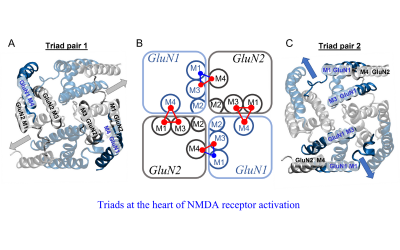
Epithelial Physiology

Circuits and Systems Neuroscience

Central and peripheral GLP-1 systems independently suppress eating
Find out More
For information on entry requirements, fees, how to apply and much more visit the Neuroscience MSc Prospectus Page.
 Close
Close



